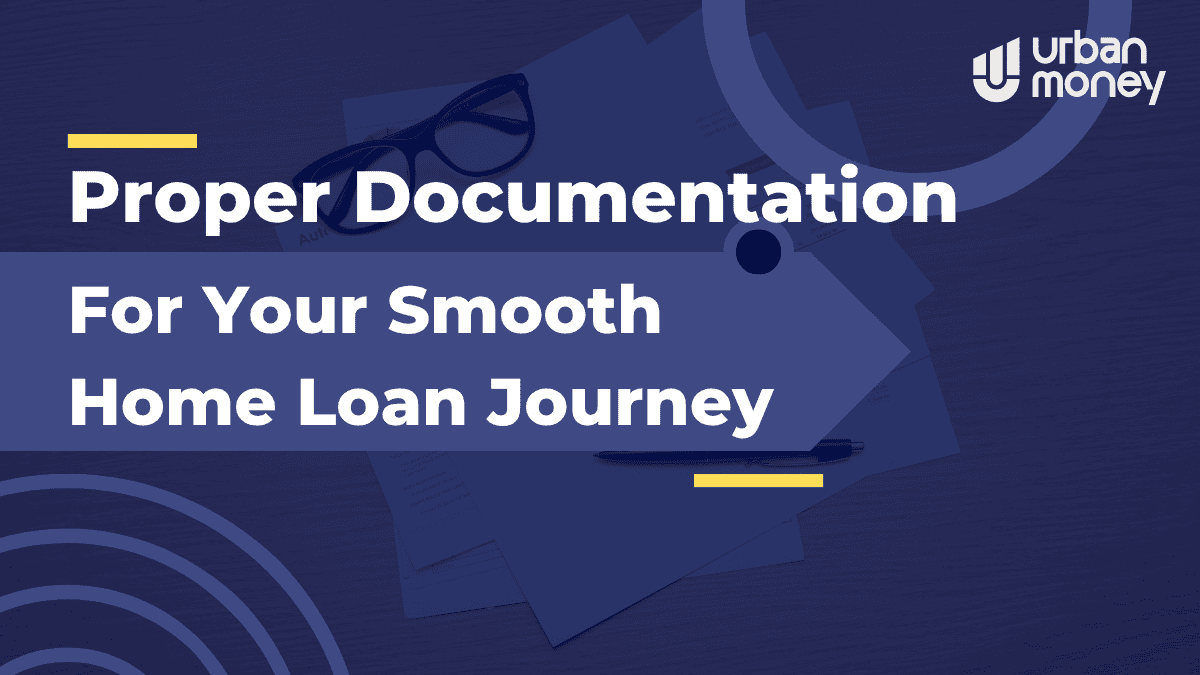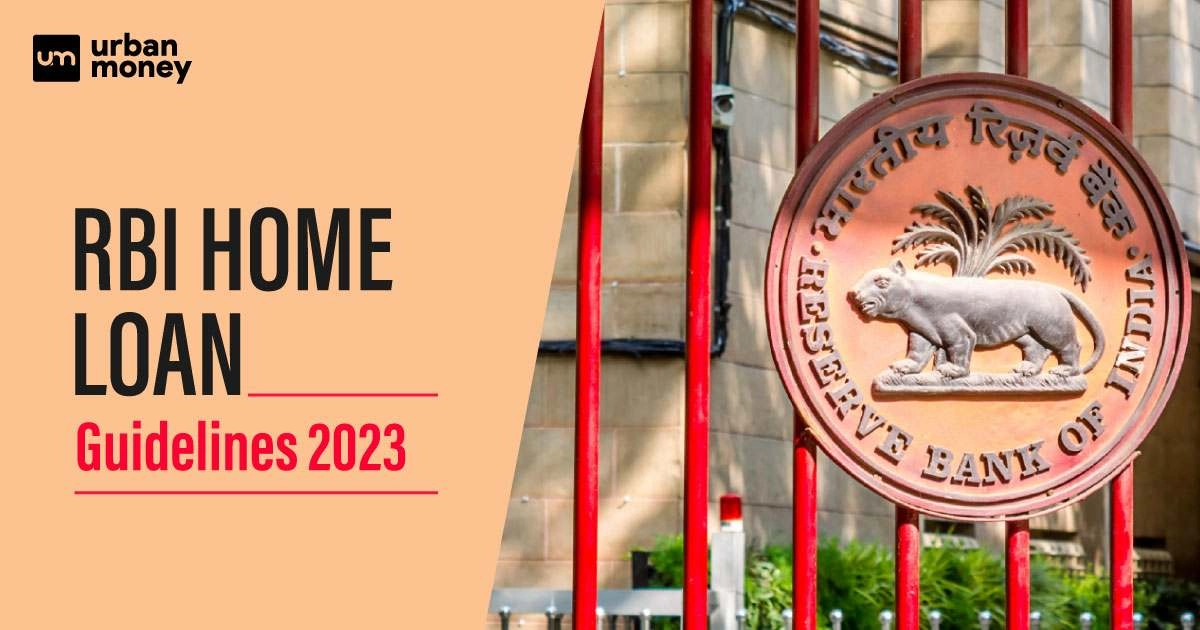Top 10 Best Private Banks in India List 2025
January 09, 2025
Home Loan Archive | Choosing A Home Loan Balance Transfer

July 06, 2022


We all dream about owning a home that reflects our personality and style. Purchasing a home can be an expensive affair and might drain most of your savings. However, you can always opt for a home loan to meet your financial requirements. Nevertheless, a home loan comes with exorbitant interest rates. Do you also find yourself drained by high EMI payments? Are you looking for a cost-effective alternative?
No worries; we’ve got you covered! You can now reduce your interest outflow by availing a home loan balance transfer. Indeed! You read that right; you can switch lenders and negotiate interest rates according to your creditworthiness and prerequisites.
What more? You get an open door to re-evaluate your debt and attract substantial top-up loans in addition to a balance transfer. Looks intriguing? Hold on! Don’t make a decision in haste. We have provided you with an inside-out guide on how and when you ought to consider a home loan balance transfer. Check out the blog for more!
Table of Contents
ToggleHome loan balance transfers allow you to dodge increasing interest rates by transferring the outstanding principal balance from your current lender to a new one. Apart from relatively low-interest rates and reduced EMIs, you can benefit from a customizable repayment plan.
Your new lender may offer a better and more economical interest rate on your existing loan based on your eligibility. A minimal reduction in financing costs can lead to considerable savings, increasing affordability. In addition, you can seek better terms and conditions when transferring your home loan balance.
You can most definitely fulfill your dream of buying a home with a home loan. Home loans are long-term commitments, and outrageous interest rates can directly impact your finances. It may be a viable alternative to transfer your home loan from your current home loan if it negatively affects your finances.
A home loan balance transfer is typically prefered by the borrowers when they are not granted favorable terms and conditions. High-interest rates resulting in burdensome EMIs are one of the pronounced reasons for people opting for a home loan balance transfer.
Once the borrower decides to transfer his loan, he applies for a balance transfer with the new financer. Upon completing the documentation and verification process, the new lending institution will pay off the outstanding obligation to the previous lender and close the account. Following that, the borrower starts repaying the home loan EMIs to the current financer.
Balance transfers on your home loan can prove beneficial only if you utilise this facility in the initial stages of the loan. Yet, there is no guarantee the facility will be favorable for all. Before applying, ensure you are familiar with the new lender’s terms and conditions. The new lending institution may also charge processing fees on the documentation process, whereas the old lending institution will charge foreclosure charges.
Home loans are considered the best financing option to achieve your dream of owning a house. The secured and high-value financial assistance is provided by banks and housing finance companies to the borrower to purchase a property.
Whereas, a home loan balance transfer allows you to switch between lenders for better interest rates. Borrowers can use this facility to optimise the home loan tenure. It offers the borrower the advantage of relatively low-interest rates, reduced EMIs, flexible repayment terms, and enhanced benefits in accordance with their creditworthiness.
Given below is how you can transfer your home loan from one lender to another:
Given below is the basic eligibility criteria that an applicant must fulfill to apply for a home loan balance transfer:
Given below are some of the documents that you will have to submit to apply for a home loan balance transfer:
| Particulars | Salaried Employees |
| Application Form | ● Application form duly signed ● Passport size photographs |
| KYC Documents (Identity Proof & Address Proof) | ● Aadhaar Card ● PAN Card ● Driving licence ● Voter ID ● Passport |
| Age Proof | ● Aadhaar Card ● PAN Card ● Driving licence ● Voter ID ● Passport |
| Income Proof | ● 3 months’ salary slips ● Form 16 ● Past 6 months’ bank statement ● Previous 3 years ITR along with financials |
| Property Documents | ● Existing loan statement ● List of property documents submitted to existing lender ● EMI payment track record |
| Particulars | Self-Employed Individuals |
| Application Form | ● Application form duly signed ● Passport size photographs |
| KYC Documents (Identity Proof & Address Proof) | ● Aadhaar Card ● PAN Card ● Driving licence ● Voter ID ● Passport |
| Age Proof | ● Aadhaar Card ● PAN Card ● Driving licence ● Voter ID ● Passport |
| Income Proof | ● Profit and Loss statement for the previous year ● Balance sheet audited by a CA for the previous year ● Proof of business existence ● Previous 3 years’ ITR ● Certificate of registration |
| Property Documents | ● Existing loan statement ● List of property documents submitted to existing lender ● EMI payment track record |
Given below are some of the things that you should consider before applying for a home loan balance transfer:
Once you have narrowed down your list of potential financing houses based on the interest rates and benefits they offer, you should check the reliability of each. Before making a final decision, make sure you check the reputation and reviews of the company. It is advisable to choose a lender that has a reputable standing in the market and has been involved in the indutsry for a significant period of time.
Before you start looking for new lending institutions for a home loan balance transfer, you must be aware of the terms and conditions of your existing lending institution. If the clauses of your current lender restrict you from opting for a balance transfer, you can always negotiate the interest rates with them. However, if you opt for a balance transfer, you must explore all the possibilities before making a final decision.
You can negotiate the interest rates if you have a good relationship with the current lender. To accomplish this, you must maintain a good credit score and an upbeat repayment history. In many cases, lending institutions agree to negotiate since they don’t want to lose a valuable customer. Moreover, if it goes your way, it will save you money and time spent in documentation formalities at a new lender.
The importance of a high credit score cannot be overstated, as it proves your creditworthiness. An impeccable credit score above 750 allows an applicant to select from the most reputable lenders. A solid financial history enables you to negotiate the terms in accordance with your needs. However, a less than ideal credit score can lead to a rejection of a home loan balance transfer request.
An array of fees and charges are associated with a home loan balance transfer. It’s imperative to determine whether the benefits justify the costs involved. Otherwise, a balance transfer is not in your best interest. A balance transfer can include various fees and charges that may drive up the cost of the process, be sure to understand all the costs and whether you can afford them.
You must be aware that you will be bound by the terms and conditions of a new lender once you consent to the agreement. Prior to moving your home loan balance to a new lender, you must do your research. Although the interest rates might look appealing, you should also understand the clauses of the agreement. In this way, you can also be consciously aware of all the hidden charges.
Given below are some of the reasons why a home loan balance transfer can be the ideal option for you:
You can always opt for a balance transfer if you aren’t satisfied with your current home loan terms and conditions. In this way, you can lower your EMIs and get lower interest rates. This can effectively lower the repayment burden on the borrower. Having a favourable credit score is a prerequisite for applying for this facility.
You can negotiate the repayment tenure as part of the balance transfer process. You can get your term shortened or extended according to your convenience. Extending the term reduces EMIs, but raises overall interest payments. Alternatively, a shorter tenure may have a lower interest part, but the EMI amount will be higher. Therefore, it is prudent to negotiate the tenure, taking into account both the benefits and the costs.
A top loan is an additional loan provided by financial institutions for balance transfers. A positive credit history allows you to avail of top-up loans at lower interest rates.
You may be offered additional benefits if you have a good credit score and no repayment dues. Possible benefits include zero processing fees, EMI waivers, etc.
Given below are some of the banks and NBFCs in India that provide the option of a home loan balance transfer:
| Bank/ HFC | Interest Rates |
| SBI | 7.55% p.a. |
| HDFC | 7.65% p.a. |
| Bank of Baroda | 7.40% p.a. |
| Axis Bank | 7.60% p.a. |
| PNB Housing Finance | 6.99% p.a. |
| LIC | 7.55% p.a. |
| Bajaj Home Finance | 7.35% p.a. |
| Tata Capital | 7.55% p.a. |
Why settle for unsatisfactory customer service for 30 long years? A home loan is a long-term commitment with your lending institution. Hence if you are not satisfied with the clauses of the agreement or if you find the interest rates charged are higher than what other banks offer, you should consider a balance transfer.
The Reserve Bank of India regulates the interest rates and other charges on home loans. Under the RBI guidelines, the banks must link the floating interest rate with the external benchmark. This helps the borrower understand the current trend of the market before opting for a balance transfer.
Additionally, it is considered favourable to avail of the balance transfer facility during the initial years so that you can enjoy the maximum benefits. This is crucial because you pay more from the interest component in the initial repayment tenure.
It is crucial to gauge the advantages and disadvantages of the balance transfer before jumping into it. A home loan balance transfer may be the most beneficial facility if you make an informed decision after considering the internal and external factors. Always consider negotiating with the current lender before finalising on balance transfer.
You can consider opting for a balance transfer when the interest rates offered by your current lender are higher as compared to other financial institutions. It is recommended that you opt for balance transfer in the initial stages of the loan tenure as the interest component is high during that time frame.
No, a home loan balance transfer has no direct impact on your credit score. You can always improve your credit score by paying the EMIs on time without default.
Once all the documentation process is done, a home loan balance transfer usually takes 15 days.
The processing fee usually varies from lender to lender. If you have a good credit history the lending institution might waive off the processing fee on the transfer.
A top loan is an additional loan provided by financial institutions on balance transfers. It is a loan above the existing principal.










© 2025 www.urbanmoney.com. All rights reserved.

Need Loan Assistance?


















